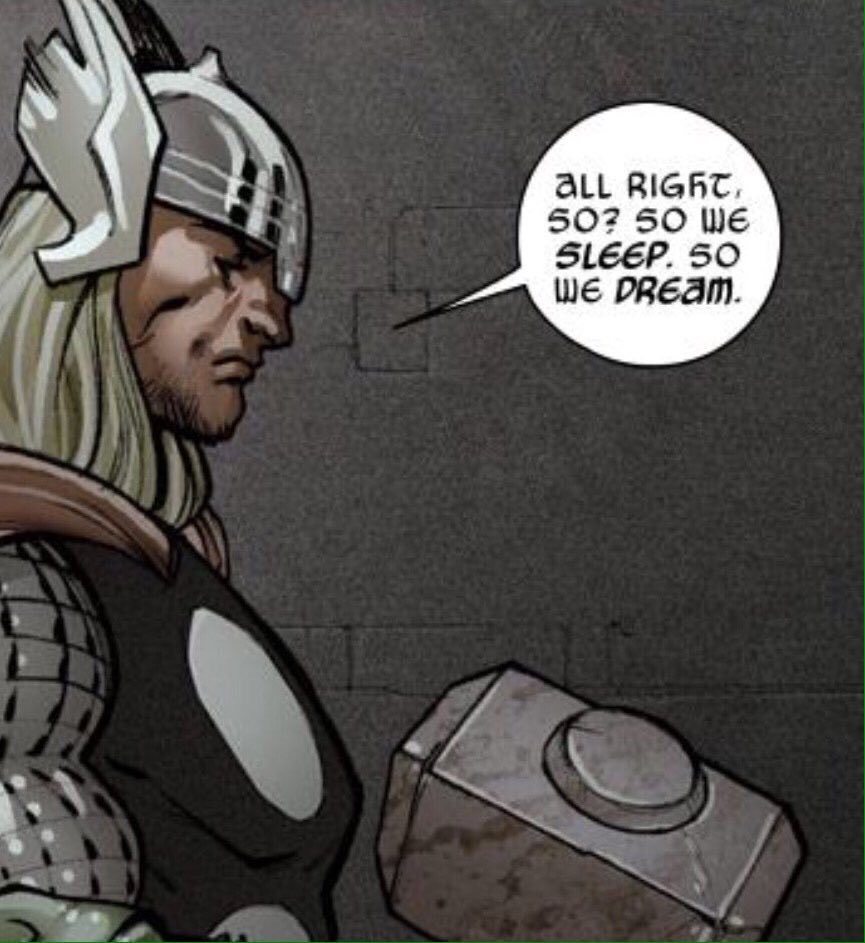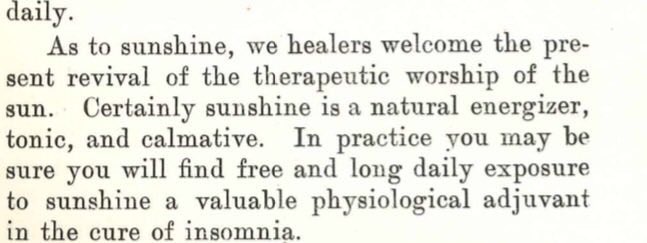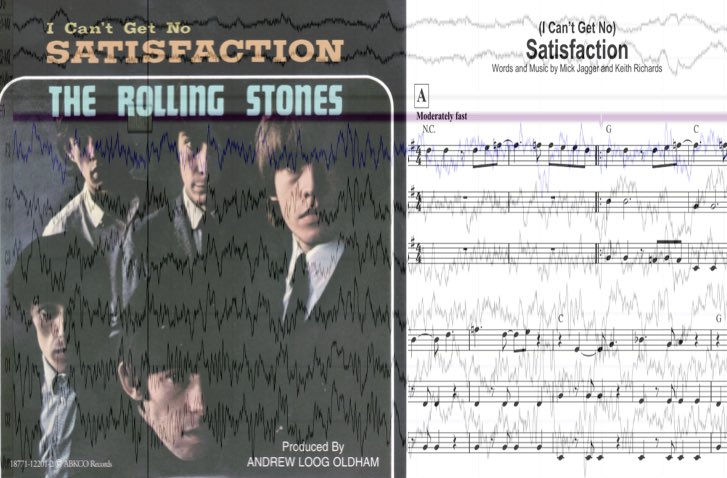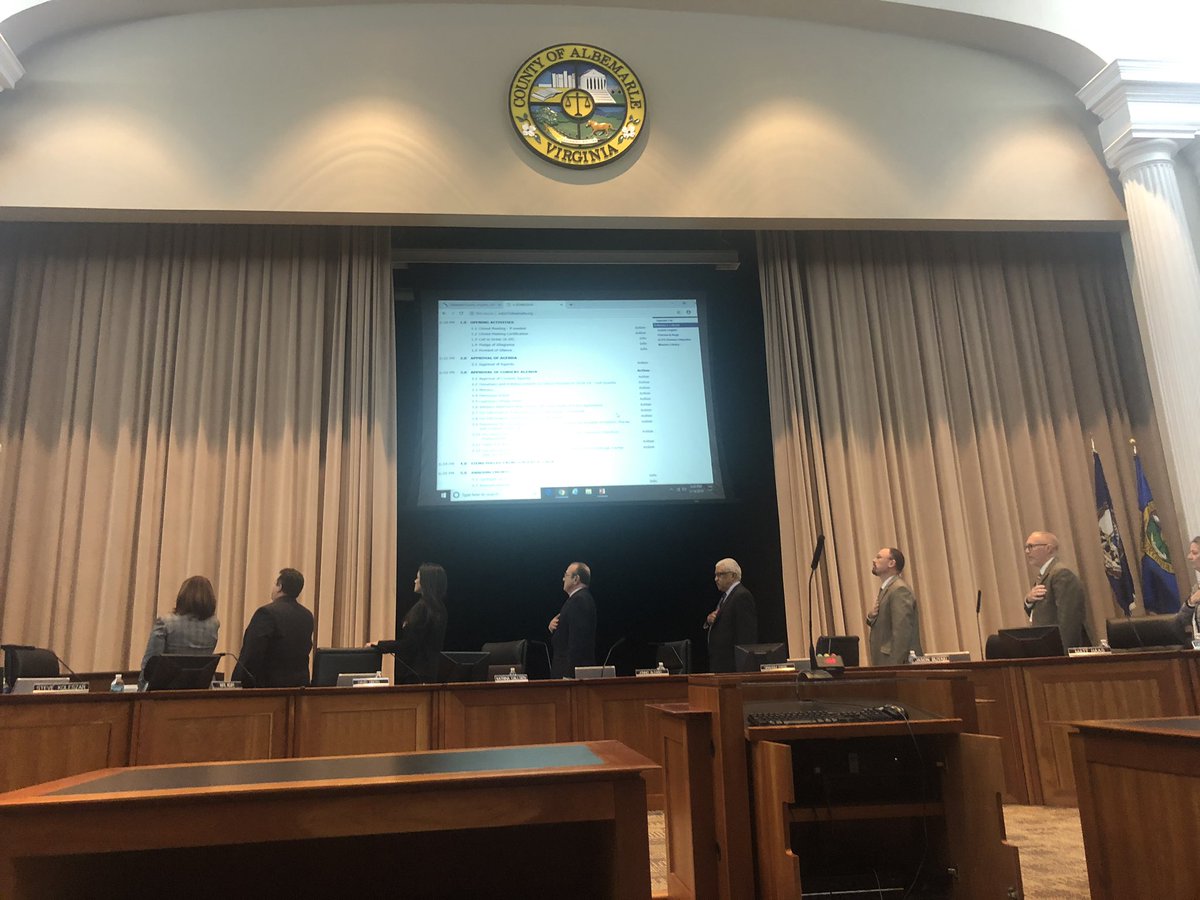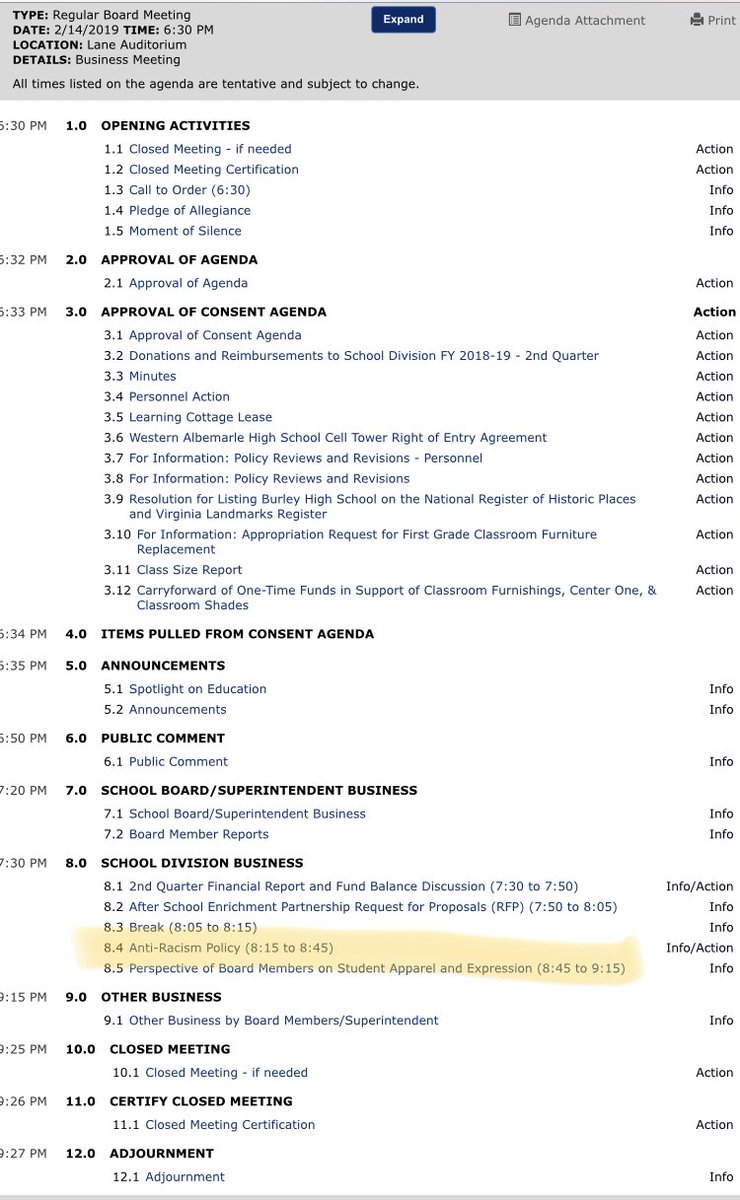Sleep is absolutely essential to your physical and mental health
Sleep’s rhythms underpin everything you do, ensuring your brain and body are working at their best: an MoT every night!
We’re often bad at recognising that, and prioritising sleep in our lives

#WorldSleepDay

Most adults in the UK get about an hour’s less sleep than they need each night ... the equivalent of missing an entire night of sleep every week!
rsph.org.uk/about-us/news/…
#WorldSleepDay

Many of us start our days with a caffeine kick to counter lack of sleep
When we prioritise sleep though, we feel better, we work better ... we make ourselves healthier
Over the course of #WorldSleepDay I’ll hopefully persuade you!

We’ve long understood sleep’s importance ... Shakespeare’s Macbeth is basically a play-length argument that we need sleep, and things rapidly go off the rails for the Macbeths without it
#WorldSleepDay

#WorldSleepDay
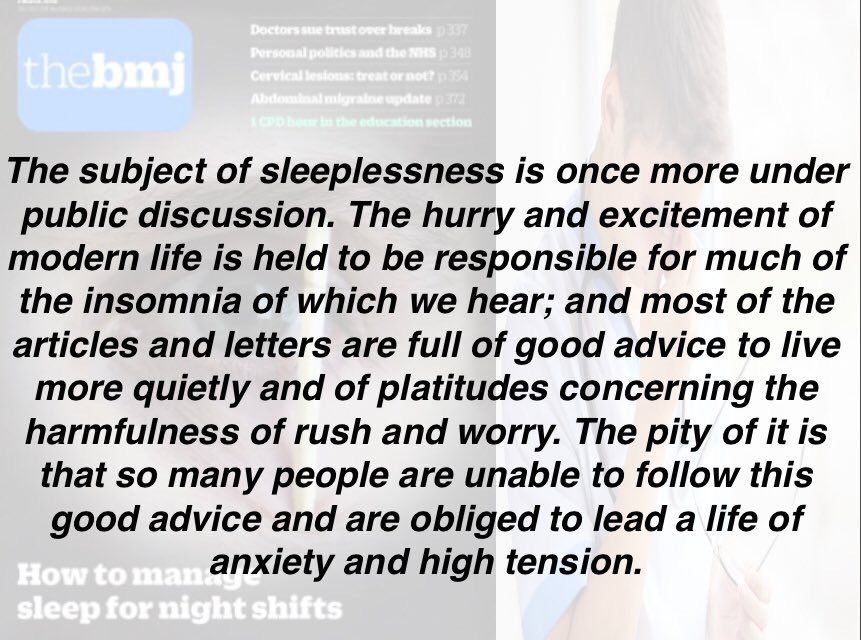
“Modern life” has felt pressured for a long time now, and its effect on sleep well-recognised - you don’t get a good night’s sleep if you’re anxious or stressed
#WorldSleepDay

While that’s partly true (Brexit, Trump...), some things *don’t* change
This is my commute if I get the timing wrong ...
#WorldSleepDay

Some things *don’t* change that much!
#WorldSleepDay

#WorldSleepDay

#WorldSleepDay

In the 19th Century it might have been Dickens’ latest page-turner stealing your sleep time ... in 2019, @netflix consider sleep their biggest competitor!
#WorldSleepDay

He needs you to sacrifice sleep so his company can make money (a LOT of money!)
Problem is that leaves you sleep-deprived!
#WorldSleepDay

psychologytoday.com/gb/blog/sleep-…
We’ll come back to *why* screens are bad for sleep later
#WorldSleepDay

#WorldSleepDay

I’ll let Reed remind you:
#WorldSleepDay

(I love old-school textbook writing style!)
#WorldSleepDay

It’s when our bodies repair ... and, for kids, grow!
#WorldSleepDay

It affects how we think, how we feel, and likely also increases risk of conditions like Alzheimer’s Disease
#WorldSleepDay

Every winter, we put a huge amount of effort into making sure @nhs staff have had flu vaccine to protect our patients ...
#WorldSleepDay

#WorldSleepDay

ncbi.nlm.nih.gov/pmc/articles/P…
#WorldSleepDay

#WorldSleepDay

Over a lifetime, that is likely, for example, to be one of the factors that means sleep deprivation is a risk factor for diseases like Alzheimer’s
#WorldSleepDay

We’ll come back later to sleep’s role in learning and emotional regulation but, when you’re sleep-deprived, your brain just isn’t at its sharpest!
#WorldSleepDay

(More on caffeine and sleep later too!)
#WorldSleepDay

metro.co.uk/2017/03/16/wha…
It’s essential we look after our staff to be able to deliver safe, efficient, effective care to our patients
#FightFatigue

bma.org.uk/connecting-doc…
There’s been a great response!
#WorldSleepDay

aagbi.org/professionals/…
#WorldSleepDay

onlinelibrary.wiley.com/doi/full/10.11…
#WorldSleepDay

#WorldSleepDay
guysandstthomas.nhs.uk/news-and-event…
(launched on #WorldSleepDay in 2017!)
#FightFatigue #GiveUsABreak

#FightFatigue #WorldSleepDay #GiveUsABreak

#FightFatigue #WorldSleepDay #GiveUsABreak

#FightFatigue #WorldSleepDay #GiveUsABreak
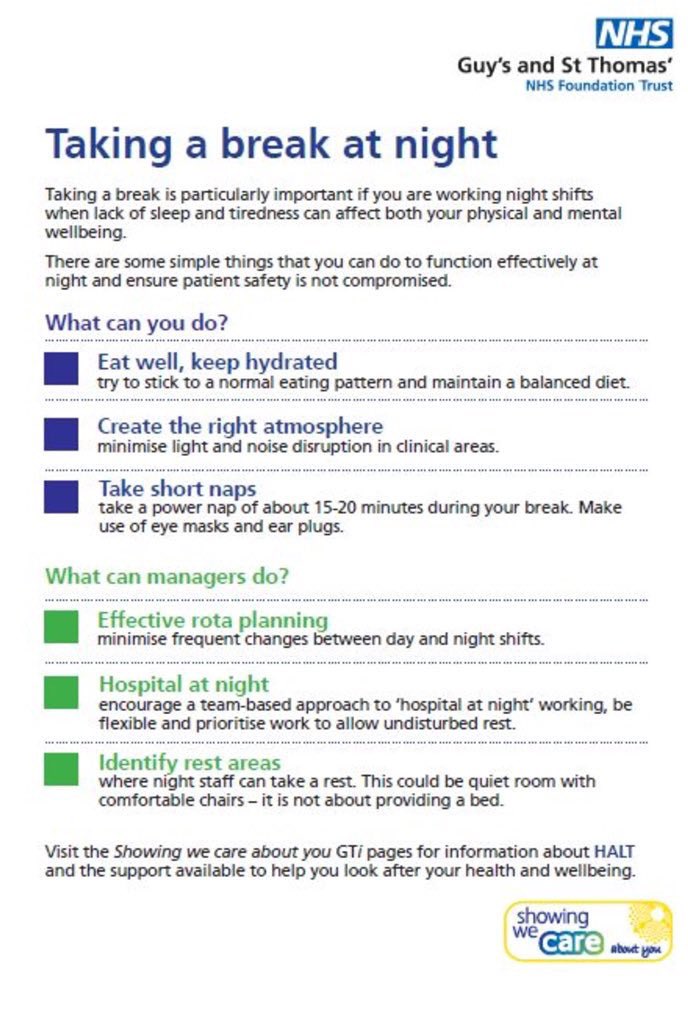
You can hear @docanthea and I talking about issues around @nhs rest, breaks and the impact of fatigue on staff and patients in this @bmj_latest webcast
facebook.com/bmjdotcom/post…
nhsemployers.org/blog/2018/10/t…
Power naps on night shift can be an essential #Recharge tool to #FightFatigue and keep staff and patients more safe
@bmj_latest
#WorldSleepDay #GiveUsABreak

ep.bmj.com/content/102/3/…
#FightFatigue #WorldSleepDay #GiveUsABreak
How often do you think of them?
#WorldSleepDay @bmj_latest
blogs.bmj.com/bmj/2017/10/06…
So - how do you get a good night’s sleep?
Let’s do some basics
#WorldSleepDay

Duration: right amount for you
Continuity: no disruption
Depth: good quality
#WorldSleepDay

#WorldSleepDay

#WorldSleepDay

If you get 7 hours and you *need* 9 hours though ... you’ll be 2 hours sleep deprived *every* night.
Understanding your own sleep need is essential!
#WorldSleepDay

If you do, this catch-up sleep is called social jet-lag ... and is a strong marker of sleep deprivation!
#WorldSleepDay

#WorldSleepDay

#WorldSleepDay

#WorldSleepDay

Bedrooms should be cool, dark, quiet and comfortable. It’s worth investing to get it right!
#WorldSleepDay

#WorldSleepDay

#WorldSleepDay

We’ll come back to light and the body clock later!
#WorldSleepDay

Be careful though ... for some people doing exercise too close to bedtime can make it more difficult to get to sleep (some people like a late-night gym session though!)
#WorldSleepDay


#WorldSleepDay

#WorldSleepDay

#WorldSleepDay

Or that ‘decaffeinated’ drinks still have caffeine in them?
#WorldSleepDay

(Espressos in the dark not a solution!)
#WorldSleepDay

#WorldSleepDay

The @Headspace app works for many: headspace.com
#WorldSleepDay

@GSTTnhs our staff have free access to Sleepio as part of supporting wellbeing
sleepio.com/work/nhs/
#WorldSleepDay

This is the hypnogram ... the diagrammatic representation of normal sleep. Understanding it is the key to unlocking many of sleep’s features (and mysteries!)
#WorldSleepDay

Transitional/Light: nREM 1 and 2
Deep: nREM 3
“Dream”: Rapid Eye Movement (REM)
#WorldSleepDay

50% in light sleep
25% in deep sleep
25% in REM (dream) sleep
#WorldSleepDay

After that sleep is more light sleep and REM
#WorldSleepDay

Deep sleep broadly supports physical growth/repair
Light/REM sleep broadly important for learning, emotional regulation, memory processing
But sleep’s complex, we still don’t understand it all and this is a simplification!
#WorldSleepDay

Our brains and bodies depend on those rhythms to function properly
#WorldSleepDay

If sleep is disrupted, children can ‘fail to thrive’ ... not grow as well as they should
#WorldSleepDay
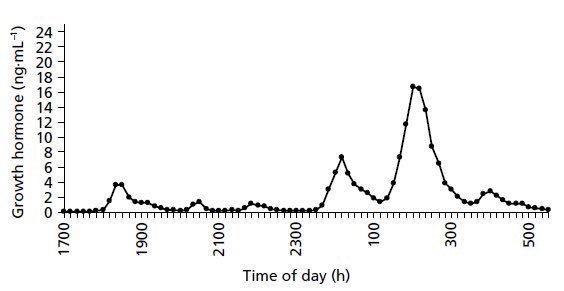
That has consequences!
#WorldSleepDay

#WorldSleepDay

Improving sleep quality can involve a bit of detective work!
#WorldSleepDay

Improving sleep often needs the source to be identified and treated - which can be v challenging with anxiety!
#WorldSleepDay

#WorldSleepDay

#WorldSleepDay

The most fundamental rhythm of sleep is our body clock, our circadian drive, which acts like a master control to keep us awake by day, asleep by night ... unless we choose to fight it!
#WorldSleepDay

The other - Process S - is our sleep drive.
The longer we are awake, the more tired we feel
#WorldSleepDay

#WorldSleepDay

Some cultures encourage a siesta ... in the UK we’re perhaps more likely to go and get a double espresso!
(We also see this post-lunch lull reflected in accident incidence figures)
#WorldSleepDay
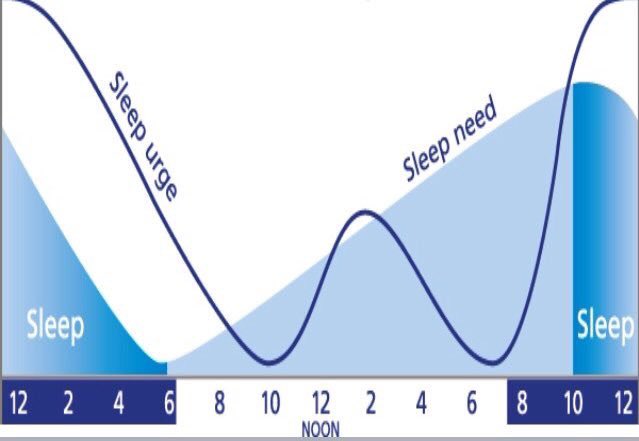
#WorldSleepDay
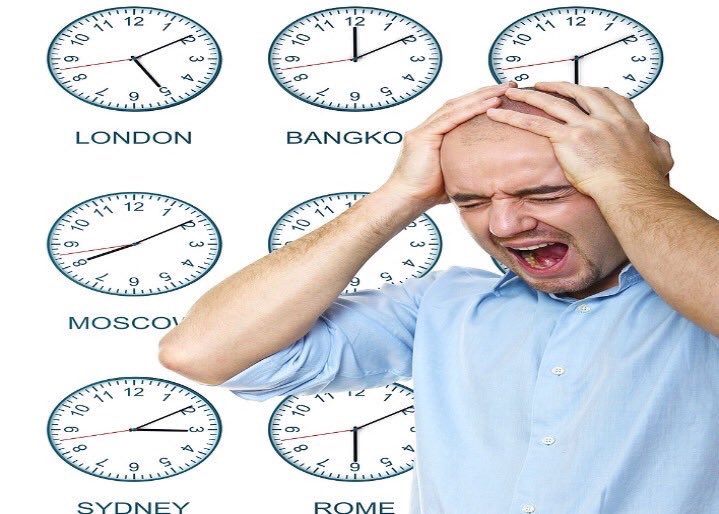
This body clock preference is partly genetic
#WorldSleepDay

~75% have body clocks >24hrs
~25% <24hrs
We constantly resynchronise our clocks every day.
Light is crucial to that process.
#WorldSleepDay

It’s going to be a major area of development in 21st Century healthcare, as we tailor people’s medical care better to their own unique biological rhythm
#WorldSleepDay

Light is the most powerful external influence on our body clocks.
Regular exposure to light and dark entrains our sleep cycle.
We use “zeitgeber” - ‘time giver’ - to describe any factor which can do this
#WorldSleepDay

#WorldSleepDay

Day = bright light = wake
Night = dark/dim light = sleep
#WorldSleepDay

Suddenly ANY time of day could be brightly lit
#WorldSleepDay

#WorldSleepDay

When your brain is exposed to bright light when it doesn’t expect to be, it is the same as telling your body clock you’ve moved time zones
#WorldSleepDay
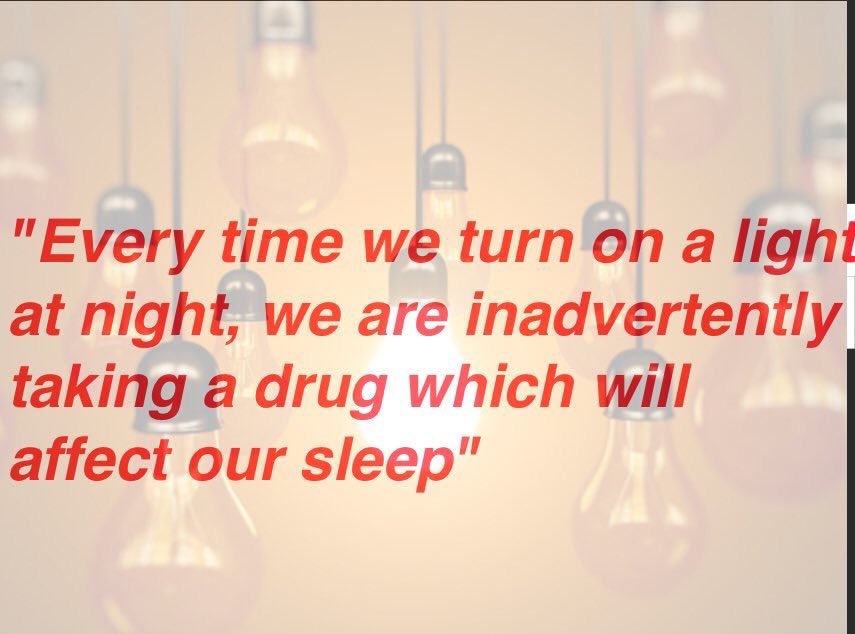
When you then try to go to sleep at 10pm ... your brain thinks it’s 5pm - so, no sleep!
#WorldSleepDay

#WorldSleepDay

journals.sagepub.com/doi/abs/10.117…
#WorldSleepDay
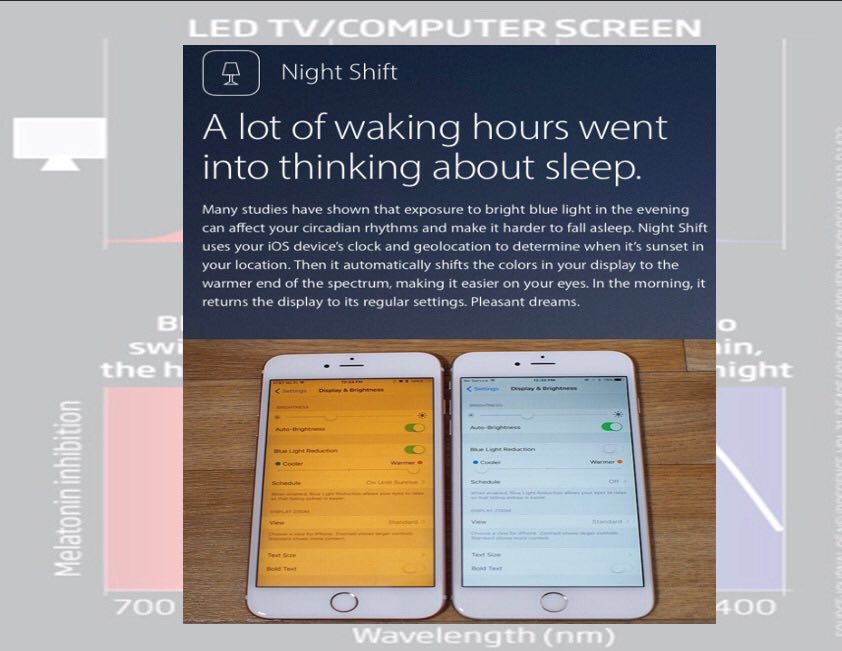
#WorldSleepDay

Family docking stations are a good way to remind everyone!
#WorldSleepDay

bbc.co.uk/news/health-38…
#WorldSleepDay
Babies, for example, sleep longer overall, but in shorter bursts, and spend much more time in REM-like sleep - supporting the huge brain growth in first year
#WorldSleepDay

Honest truth is children have been disrupting parents sleep since the Stone Age. Often it’s normal variation, and not a medical problem
#WorldSleepDay

That’s true of babies and children too, and it can be quite a wide range of normal!
At 6 months, normally developing babies may sleep as much as 16.5hrs or as little as 10hrs per 24 hours
#WorldSleepDay
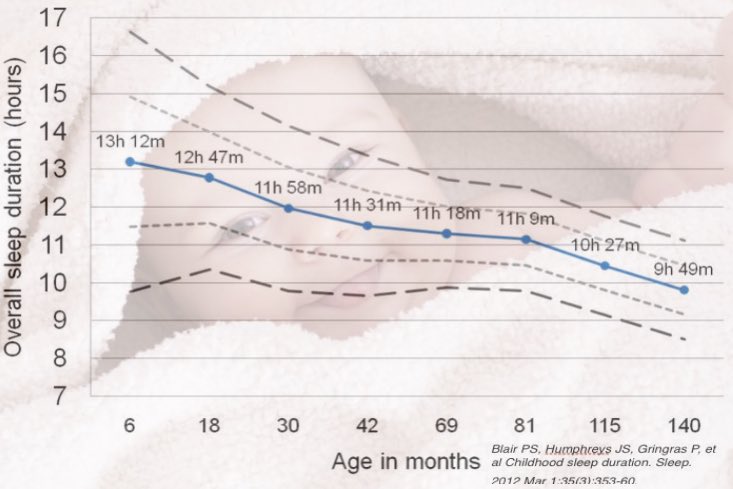
Only *you* can really work out how much sleep *you* need.
#WorldSleepDay

#WorldSleepDay

At the end of each cycle it’s normal to briefly wake and settle back into sleep; as adults we don’t usually remember these brief wakings
But babies and children need to learn to settle back into sleep
#WorldSleepDay

Wakings that affect parents sleep can be normal in even quite old children
#WorldSleepDay

#WorldSleepDay

Better advice about sleep earlier can help - the answer is very rarely fancy tests, or sleeping medicines
#WorldSleepDay

Advice can help, but the key is often support ... and not unnecessarily medicalising what is still usually normal development
academic.oup.com/sleep/advance-…
#WorldSleepDay

#WorldSleepDay

That means sticking to a good general routine and sleep habits most nights
#WorldSleepDay

ep.bmj.com/content/101/4/…
#WorldSleepDay
BabySleep.com - great team of international paediatric sleep experts offering advice
#WorldSleepDay
#WorldSleepDay
(Warning: NOT for young ears!)
#WorldSleepDay
Remember that most deep sleep, which physically recharges us, is early in the night?
Light and REM sleep, which support learning and emotion, are later
#WorldSleepDay

Sleep empties your cache each night - which allows you to learn new info the next day.
Poor sleep = poor ability to learn
#WorldSleepDay

If you don’t sleep well, you won’t retain and integrate new knowledge as well - and will score worse on exams!
#WorldSleepDay

That’s why you can go to bed having not quite “got” a new skill, and wake up the next day able to do it much better
Most of those functions occur in light sleep
#WorldSleepDay

Dream sleep helps support creative thinking
#WorldSleepDay

Kekule, puzzling out the structure of benzene, dozed off, dreamt of demon snakes eating their own tails ... and woke up realising the structure was circular (a completely new idea)
#WorldSleepDay

If both partners in a relationship are REM-deprived, arguments are much more likely to be emotionally hostile
#WorldSleepDay

#WorldSleepDay

#WorldSleepDay

#WorldSleepDay
theguardian.com/lifeandstyle/2…
pshe-association.org.uk/news/new-pshe-…

Sleep medicine is a mix of common sense general paediatrics, neurology, respiratory, mental health, neurodisability and community paediatrics.
Sleep affects everything!
#WorldSleepDay

This, by Thomas Phayre, is from the 16th Century Boke of Chyldren - first English-language paeds textbook!
#WorldSleepDay @RCPCHtweets

More kids with sleep problems need super nanny rather than a sleep doctor.
#WorldSleepDay

Most are treatable
#WorldSleepDay
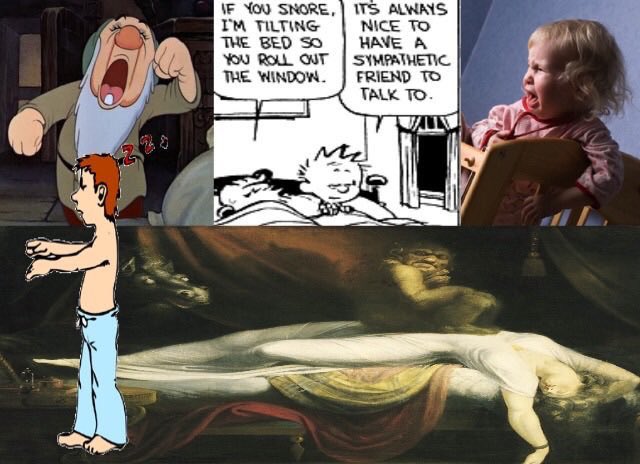
We do as much public outreach work as we can to try to help as many people as possible
evelinalondon.nhs.uk/our-services/h…
#WorldSleepDay
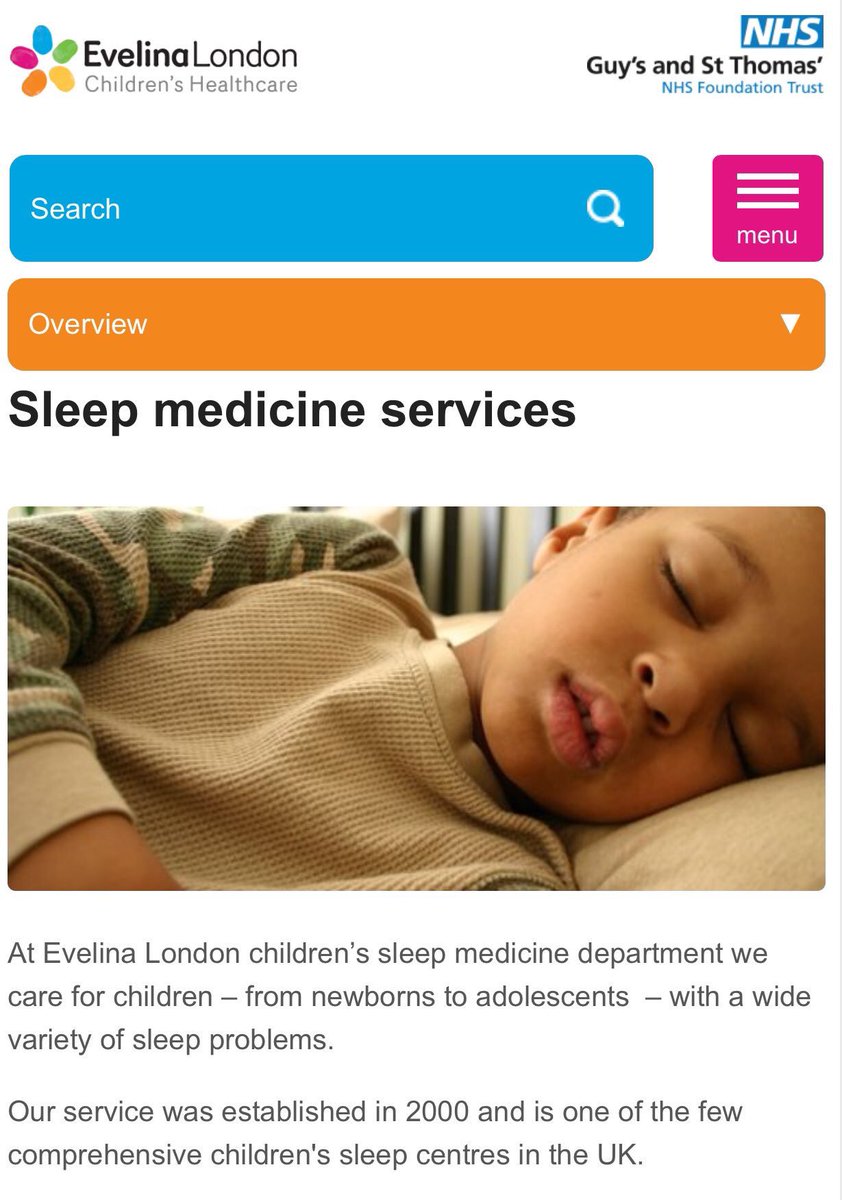
#WorldSleepDay @begley_roisin @PriyenShah86 (thanks both!)
I’ve had recurrent episodes of sleep paralysis since my teens; they’re why I ended up a sleep doctor
#WorldSleepDay

It can also be accompanied by very vivid visual hallucinations - often interpreted as supernatural
#WorldSleepDay
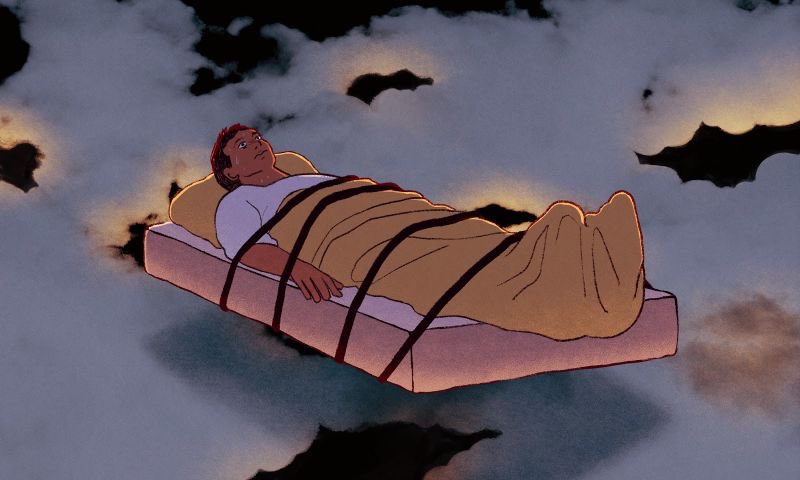
The original meaning of night-maere relates not to a horse but to a demon ... sleep paralysis
#WorldSleepDay

In medieval times, incubi and succubi were demons who would come and sexually attack men and women in their sleep
#WorldSleepDay

#WorldSleepDay

All across the world, and all the way back to the dawn of history, cultures report phenomenon we now recognise as sleep paralysis
#WorldSleepDay

Often accompanied by visual and other sensory sensations - hypnagogic/pompic hallucinations
#WorldSleepDay

Normally we’re unaware of this paralysis as it stops as we wake
#WorldSleepDay

You try to take a deep breath in, but can’t because accessory muscles of respiration are paralysed
Your brain interprets that as pressure on your chest, or a band around it, or choking sensation
#WorldSleepDay
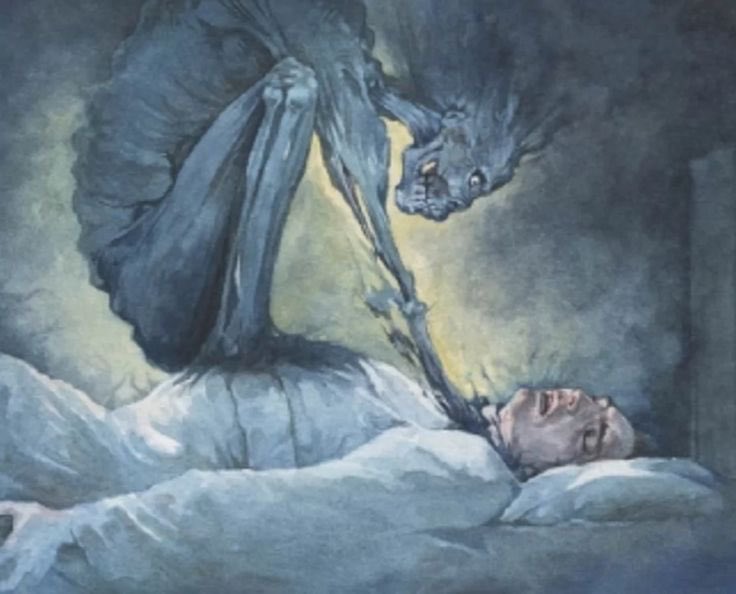
It’s terrifying as an adult with a detailed understanding of sleep.
Imagine it happening to a 5 year old.
#WorldSleepDay

#WorldSleepDay

(From the excellent Prof Bob Morris, first Professor of Parapsychology @EdinburghUni)
@KPUNews

As with most sleep problems, SP much more likely to occur if you’re not getting enough good quality sleep: focus on improving core sleep routine and habits, cut out usual culprits like caffeine
#WorldSleepDay
- try to stay calm (not easy), focus on slow calm breaths
- focus on ONE part of your body and move that. Once you get ANY movement, paralysis usually breaks. (I usually wiggle my toe)
- external sensory input (eg touch) can help but tricky to do!
It’s also a great example of how sleep is all about science, stories and social lenses
#WorldSleepDay
Every human who’s ever lived, has shared this brilliantly bizarre thing that we all do and all take for granted - and we’re only now beginning to really understand.
#WorldSleepDay

#WorldSleepDay

Every time I come back it it, I take something new away

Hopefully I’ve not filled up your timeline too much, and you’ve learnt something new or interesting or useful about sleep.
(This was me as a kid...I didn’t need an iPhone to stop me sleeping!)

Sleep is still full of mystery and magic and wonder.
It’s where science meets story, where medicine meets myth.
It is both rhythmical and random, and it’s a privilege to spend so much of my life delving into it.
#WorldSleepDay

And, sleep well!
Tomorrow is another day.
#WorldSleepDay
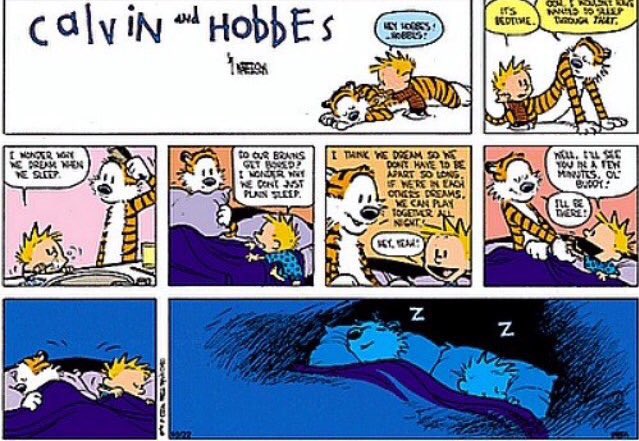
@neilhimself: The Sandman
@sleepdiplomat: Why We Sleep
@guylesch: The Nocturnal Brain
#WorldSleepDay


